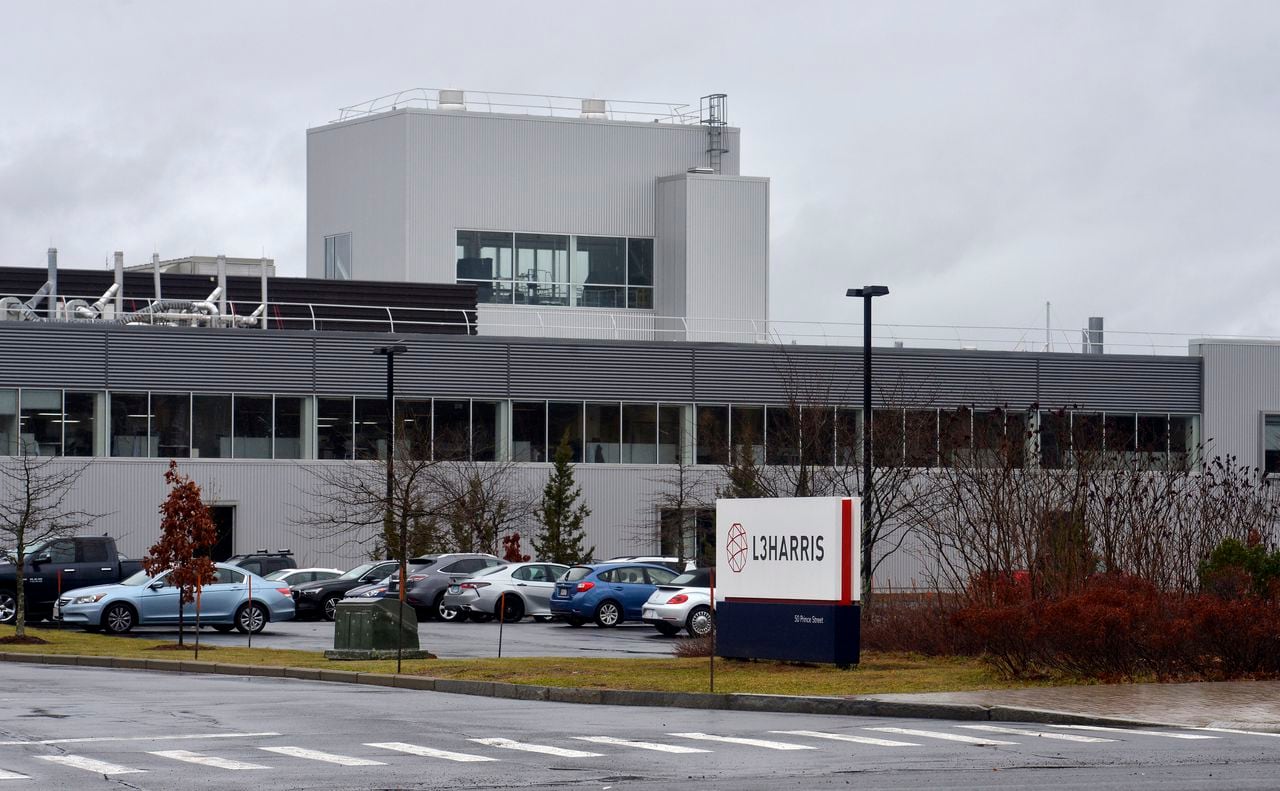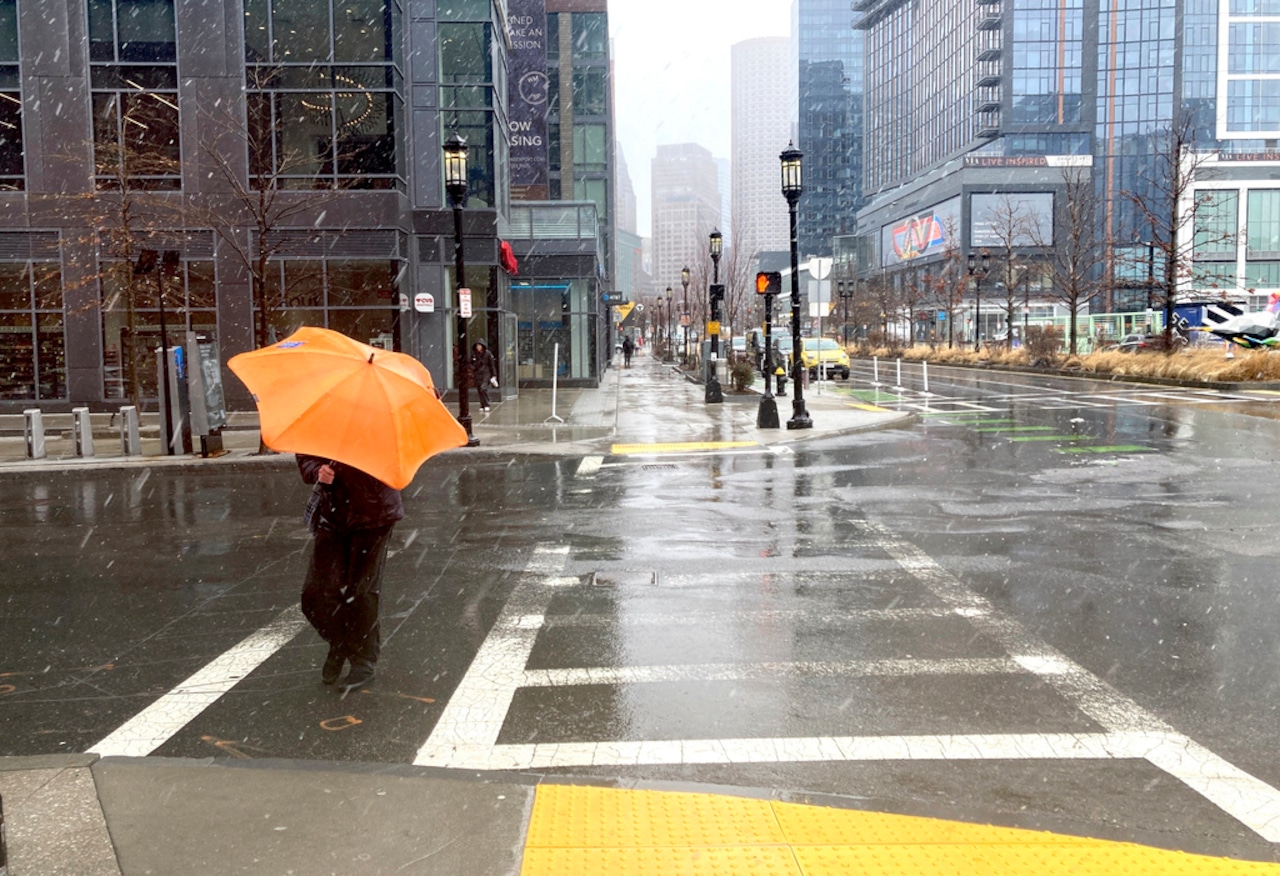NORTHAMPTON — Sonya Epstein, a 23-year-old University of Massachusetts Amherst student, spent a night in jail — her first — after being arrested during an October protest against defense contractor L3Harris in Northampton. That night behind bars was as bad as she imagined it would be.
“The isolation you feel, and the most striking thing was the complete lack of privacy,” Epstein told The Republican. “They were gathering information from me, getting my fingerprints. Then not even being able to sleep or go to the bathroom in privacy. It was jarring, being in such a cold, desolate place.”
There with her that night was a woman, Priscilla Lynch of Conway, 72, who protested wars before Epstein was born. In recent interviews, the two described their reasons for putting their comfort and safety on the line.
Epstein, Lynch and more than two dozen others were demonstrating outside the military contractor, blocking entry to the property, preventing one delivery and several people from going to work
Lynch, a retired social worker, spent the night in jail with Epstein and four other demonstrators.
“It’s the way I can have an impact, to express my disdain for what is happening, my commitment to change and giving humanity a voice,” she said. “L3Harris is making weapons used by the military, they’re used in policing. They’re used in oppression and on nuclear weapons.”
Chaining themselves to trailers and to each other, the protesters wouldn’t let anyone onto L3Harris’s property for seven hours. They were arrested on charges of disturbing the peace, resisting arrest and trespassing, according to Northampton police. They appeared in court in December, were released on probation and have been ordered to stay away from the company.
The protesters are accusing the business of, among other things, “fueling the genocide of Palestinians and countless other deadly imperialist campaigns.”
The company declined to make a spokesperson available to The Republican for an interview, stating that “L3Harris respects the rights of individuals or groups to peacefully protest.”
Decades of demonstrating
Lynch has spent more than five decades trying to pressure government and business leaders to, among other things, stop construction of a gas pipeline through Otis State Forest, end climate change and halt wars in Vietnam and Iraq. She’s been in more protests than she can remember and has landed in jail many times.
“I’ve been arrested in Franklin, Berkshire and now Hampshire County, also in Washington, D.C., and New York,” Lynch said.
“War is the general theme. It has a huge effect on our climate. Our foreign policy, which is not friendly to the human race, has a lot to do with what’s happening. Policing, militarism, indigenous rights. They’re all affected by war,” she said.
Lynch has gone before many judges, not denying but defending her actions. Every so often, lawyers have defended her for free — donations have helped, too. She’s personally paid some fines and legal costs, but she’s not sure what it all adds up to.
“I don’t even care. I’ve been able to deal with the fines. I’ve been able to deal with the cost of getting to and from places. I have limited funds, but you don’t have to be rich to do this work,” she said.
After 54 years of fighting powerful forces, she still has passion for her causes, even as war rages and weapons become more powerful and deadly. In the face of this, Lynch believes she’s helped advance peace.
“I don’t think what we’re doing should be minimized because there isn’t an immediate result. There are people out there listening and acting. It’s a huge, huge change that we are looking for, and that has to happen over time. It’s going to take a lot of voices,” she said.
A new generation
While Lynch has spent a lifetime going public with her opinions, Epstein is beginning her trek down the same path. She’s studying social thought and political economy at UMass. She wants to be a community activist, promoting access to food, housing, free speech — “and uplifting communities to get the funding and resources they need,” she said.
Epstein’s coming of age came when she was 16, when she told friends and family she is queer. That, along with presidential elections in 2016, inspired her to more boldly go public with her beliefs.
“There are many more things we can do to produce goods that help people rather than killing them,” she said. “War and bombing are destroying our planet and poisoning us. Why are we doing that to ourselves?”
Epstein said she and others took aim at L3Harris because few people know what’s happening inside the company’s Northampton operation. She believes many don’t even know the defense contractor is operating in the city.
“Knowing they have a location so close to where I live is horrifying to me. This isn’t something I could just ignore,” she said. “This is a company profiting off death.”
On that, the two women’s views align.
As world leaders speak of war, discussing measured responses and acceptable violence, Lynch doesn’t like to discuss what role the military should play in defending America.
“We are so over-militarized, we don’t even need to ask that question,” she said. “What we need to do is [ask] how do we tone this down? How do we learn to talk, negotiate and care not about ourselves but each other? That’s a big step and a long process. That’s far ahead of any talk about do we need a military at all,”
Epstein wants complete demilitarization. She believes there is no role for a military, not even one that deters attacks from countries the U.S. defines as its enemies.
“It involves a lot of thinking what the whole world would look like if it demilitarized, if there was a different definition of safety, where it’s not defined as being safe from others, but rather being in community and in touch with others,” she said. “Ensuring the needs and safety of everyone.”
Staasi Heropoulos is a longtime Western Massachusetts television and print journalist. Send human interest and feature story ideas to staasi.heropoulos@gmail.com.

Defense contractor L3Harris in Northampton. (Don Treeger / The Republican) 12/28/2023The Republican




